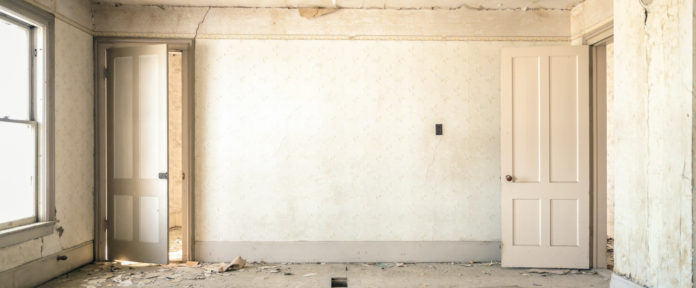Flipping houses for profit isn’t a very complicated process, but it does involve a great deal of research, preparation, and work. The process should be treated like any other entrepreneurial endeavor in that you will need to create a business plan, raise capital, and estimate growth projections. You can reduce your risks for loss and ensure a quicker route to success by following a few basic steps in flipping your first property.
Start Networking Early
Your ability to network with others is going to play a large part in your success with flipping homes as you will need to know a broad range of skilled tradesmen. For instance, you can look up contractors in your area like roofers in Richmond VA, read reviews and any work done previously to find reliable services. Trying to replace a roof or install a new kitchen sink on your own can end up costing you more money and leave you with unsatisfactory results.
In addition to networking with contractors, you should also be networking with real estate agents and attorneys, lenders, and other professionals who work in the real estate industry. Knowing a broad range of people in the trade can help you evaluate the quality of service each professional offers, and it will give you access to the resources you’ll need to use.
Research the Market
Before you can think about investing in real estate for any type of project, you will first have to learn about the market. As soon as you decide that flipping houses are something you want to try, you should start watching the market to look for buyer trends, prices, and other factors that will influence your ability to succeed. Look through home listings each week to see how relevant factors have changed.
Try to predict changes in the market from week to week. As you go through this process and learn more about the things that affect the real estate market in your region, you’ll be better prepared to find properties that offer good potential for a profit.
Take Care of the Red Tape
In addition to studying the market, you can use this early phase of flipping your first house to prepare for the project. You’ll need to figure out how you’ll finance your project. Keep in mind that borrowing less will help you earn a greater profit from your sale of the property. Consider using your own savings or launching a crowdfunding campaign to raise some or all of the capital you will need. Additionally, be prepared to ensure the property for the period that you’ll own it. You will also have to get building permits and ensure you comply with local and state codes. Be prepared to pay real estate agent and attorney fees as well.
Be Frugal in Updating the Property
Many first-time real estate investors will go too far in updating the property they intend to flip. While the home may look better, you should realize that some updates won’t increase the market value of the property. This means the money you paid to make those improvements won’t be recouped upon the sale of the property. As you prepare to flip your first house, it would be beneficial to consult a real estate agent. They can tell you which updates will add value to the home, allowing you to focus only on updates that will help raise your profit margin.
Keep Your Job
It’s important to realize that you may not earn a large profit on the sale of your first house. Additionally, it can take longer than you expect to sell a property after you have completed its renovation. During that period, you should still ensure you’ll have a steady stream of income to rely upon. Keeping your “day job” will give you that financial security and, when the house does sell, you’ll have that much more money to put towards your next investment. You should keep working your hourly or salary job until you have flipped several houses and have a considerable nest egg to fall back on.
Conclusion
As you pursue the first few properties you’ll flip, you should also avoid getting overly ambitious. Buy modestly priced homes that you know you can flip easily and quickly. This will help you generate modest gains with each consecutive investment. As you gain more experience, you can start investing in more upscale homes that will generate larger profits for you.




































